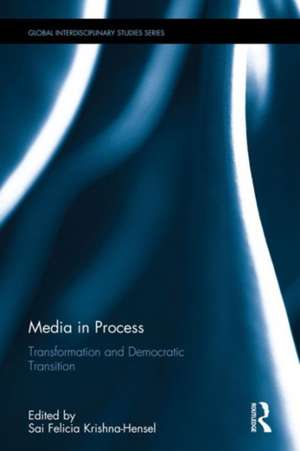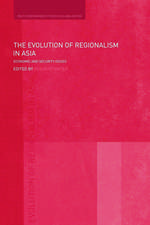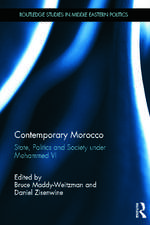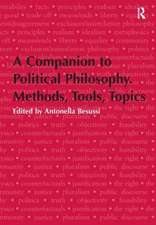Media in Process: Transformation and Democratic Transition: Global Interdisciplinary Studies Series
Editat de Sai Felicia Krishna-Henselen Limba Engleză Hardback – 22 sep 2016
The post-communist development of media systems has been uneven in the countries of the region. Television and newspapers, combined with the emergence of social media have had great influence on the political debate in various countries. Ownership of the media has been a factor in many instances. The integration of traditionally isolated Central/Eastern Europe into larger, worldwide trends have fundamentally changed the way we look at the media in this region. This volume proposes to address the transition of the media and communication industries in the contemporary period.
The contributions discuss, among other things, the obstacles that still remain for the media to play an effective watchdog role in the new democracies, and whether the advent of the Internet and social media has helped or hindered the transformation to a powerful, independent media. The discussion further examines whether advertising agencies have targeted post-communist citizens differently than those in Western European countries and examine if the media markets in the post-communist region are fundamentally different than in Western Europe and North America. A second focus of the volume is the media coverage of social issues like domestic violence, in an attempt to draw attention to issues and influence policy in a more aware and open society. This establishes the trend of post-communist media following the example of western media practice.
The implications of the Central European media transformation for the newly transforming media markets in the post-Soviet space, suggest a new phase in the development of the medium. The impact of global influences on regional expression is an important phase in the political and social changes that are underway. This volume makes an important interdisciplinary contribution in examining the development of the media."
| Toate formatele și edițiile | Preț | Express |
|---|---|---|
| Paperback (1) | 382.18 lei 6-8 săpt. | |
| Taylor & Francis – 12 dec 2019 | 382.18 lei 6-8 săpt. | |
| Hardback (1) | 819.09 lei 6-8 săpt. | |
| Taylor & Francis – 22 sep 2016 | 819.09 lei 6-8 săpt. |
Preț: 819.09 lei
Preț vechi: 1140.00 lei
-28% Nou
156.75€ • 170.21$ • 131.67£
Carte tipărită la comandă
Livrare economică 23 aprilie-07 mai
Specificații
ISBN-10: 1472470958
Pagini: 192
Ilustrații: 6
Dimensiuni: 156 x 234 x 15 mm
Greutate: 0.41 kg
Ediția:1
Editura: Taylor & Francis
Colecția Routledge
Seria Global Interdisciplinary Studies Series
Locul publicării:Oxford, United Kingdom
Cuprins
- Transforming Sino-Western Relations through Global Media and Public Diplomacy
- China’s Soft Power: A Mid-Term Assessment
- Towards Increased Diversification and Sophistication: Trends and Issues in China’s Public Diplomacy
- Exercising Public Diplomacy in Domestic Dispute: The Frames of Cross-Strait Relations by the Taiwan Affairs Office during the Chen Shui-bian Administration
- Foreign Capital in the Chinese Media Market after Joining the World Trade Organisation: Co-produced Films in Public Diplomacy and Investment Polices
- The Impact of China’s Foreign Policy on War Reporting
- Chinese State-Owned Media Going Abroad: A Case Study of Australia
- When a Rising Giant Tries to Smile: Explaining the Quixotic Quest of China’s Media Diplomacy in Australia and Beyond
- Conservative Popular Journalism, Public Diplomacy, and the Search for an Alternative Chinese Modernity: Revisiting the Global Times
- In the Name of the Nation: The Development of China’s International Propaganda from the Late-Qing to the End of World War II
- Communication and Understanding: A Chinese Perspective on Information Flows in a Converged World
Notă biografică
Descriere
The post-communist development of media systems has been uneven in the countries of the region. Television and newspapers, combined with the emergence of social media have had great influence on the political debate in various countries. Ownership of the media has been a factor in many instances. The integration of traditionally isolated Central/Eastern Europe into larger, worldwide trends have fundamentally changed the way we look at the media in this region. This volume proposes to address the transition of the media and communication industries in the contemporary period.
The contributions discuss, among other things, the obstacles that still remain for the media to play an effective watchdog role in the new democracies, and whether the advent of the Internet and social media has helped or hindered the transformation to a powerful, independent media. The discussion further examines whether advertising agencies have targeted post-communist citizens differently than those in Western European countries and examine if the media markets in the post-communist region are fundamentally different than in Western Europe and North America. A second focus of the volume is the media coverage of social issues like domestic violence, in an attempt to draw attention to issues and influence policy in a more aware and open society. This establishes the trend of post-communist media following the example of western media practice.
The implications of the Central European media transformation for the newly transforming media markets in the post-Soviet space, suggest a new phase in the development of the medium. The impact of global influences on regional expression is an important phase in the political and social changes that are underway. This volume makes an important interdisciplinary contribution in examining the development of the media."

























